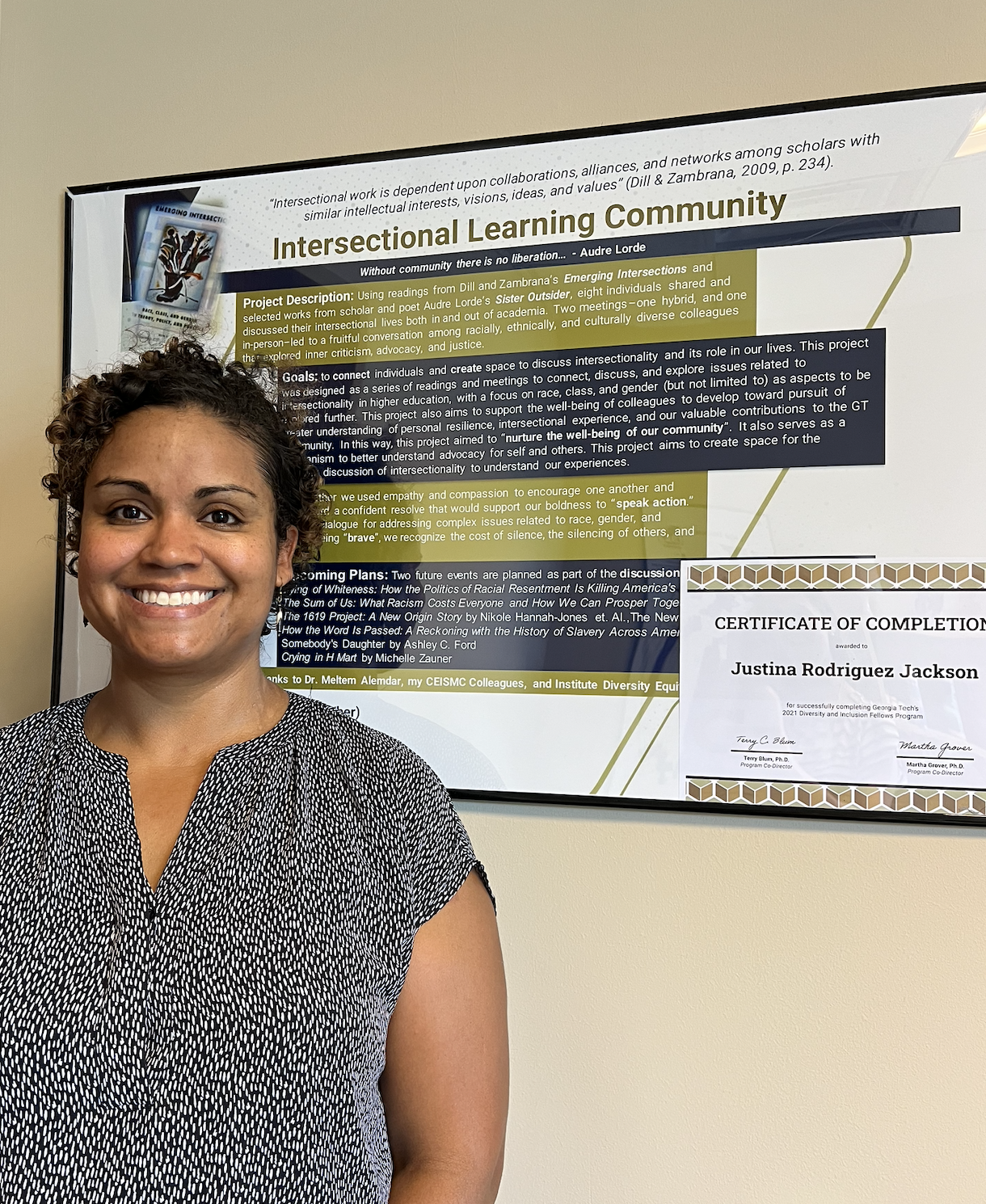
Under the umbrella of the Diversity, Equity, and Inclusion department at the Georgia Institute of Technology, the Diversity and Inclusion Fellows Program allows students, faculty, and staff to work individually and collectively on their action, research, or teaching objectives while improving inclusivity on campus. There were 35 fellows selected for the 2021-22 cohort.
Under the umbrella of the Diversity, Equity, and Inclusion department at the Georgia Institute of Technology, the Diversity and Inclusion Fellows Program allows students, faculty, and staff to work individually and collectively on their action, research, or teaching objectives while improving inclusivity on campus. There were 35 fellows selected for the 2021-22 cohort.
Justina Jackson, a research associate at Georgia Tech’s Center for Education Integrating Science, Mathematics and Computing (CEISMC), is one of the fellows from the 2021-22 cohort. As a fellow, Jackson was tasked with creating and sharing a project with the campus community, centered around creating a safe, conformable, and empowering space where a network of ambassadors would be able to promote a culture of inclusivity and diversity. Jackson was able do so through her project titled “Intersectionality Learning Community.”
By using works from Bonnie Thorton Dill and Ruth Enid Zambrana, as well as Audre Lorde, Jackson designed a program in which eight women shared and discussed intersectionality in their lives, in and outside of academia in the span of two meetings. This type of activity reflected the idea found in Dill’s and Zamabrana’s book, Emerging Intersections: Race, Class, and Gender in Theory, Policy, and Practice, that “intersectional work is dependent upon collaborations, alliances, and networks among scholars with similar intellectual interests, visions, ideas, and values.” Jackson had this quote in mind when creating this inclusive group of women in academia.
Through Jackson’s project, these women were able to share their own inner doubts with each other and open a conversation to empower one another to not only become confident, but to also understand the impacts of silence. They were able to discuss constructive dialogue for addressing complex issues.
Jackson’s project successfully created a space where diversity and inclusivity mattered. “This work is the result of people, from many different backgrounds, coming together to listen, learn, and support one another,” said Jackson. “I appreciate my team and colleagues who seek greater understanding toward a more just world.”
Through her project, Jackson was able to open the door for more long-term cultural change for the Georgia Tech campus community, fulfilling her responsibility as a fellow in the Diversity and Inclusion Fellows Program.
—Angelica Jones, CEISMC Communications